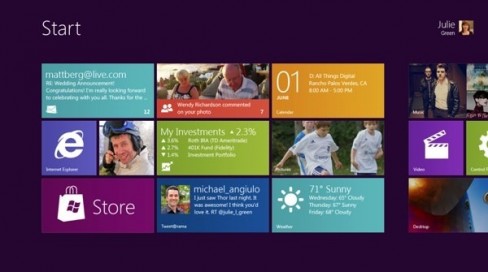
Following a controversial precedent set by Apple exactly five years ago with the release of the iPod Touch, Microsoft has announced that the next iteration of Internet Explorer, IE10, will no longer support Adobe Flash in Windows 8’s new tablet-friendly mode.
Earlier this week Microsoft demoed their forthcoming operating system Windows 8, which seamlessly switches between the familiar desktop interface and one that is optimised for tablet or touch screen devices. Now, while using IE10 in tablet-friendly “Metro” mode, browser plug-ins, like Adobe Flash, are disabled to preserve battery-life and reduce the amount of processing power required.
Dean Hachamovitch, Internet Explorer team leader, explains Microsoft’s rationale behind their decision,
“Running Metro-style IE plug-in free improves battery life as well as security, reliability, and privacy for consumers. Plug-ins were important early on in the Web’s history. But the Web has come a long way since then with HTML5. Providing compatibility with legacy plug-in technologies would detract from, rather than improve, the consumer experience of browsing in the Metro-style UI.”
Hachamovitch describes how his team analysed almost 100,000 websites and determined that 62% of these functioned as they should in the absence of a Flash plug-in by falling-back to HTML5.
Adobe Flash isn’t quite dead though. Not yet. Last week Adobe announced a new Flash Media Server product that will enable Flash content to play on Apple’s iOS devices, even without the need for additional plug-ins. With another big player like Microsoft turning its back on Flash in favour of HTML5, it’s hard to see a future where Flash exists significantly in five years time.